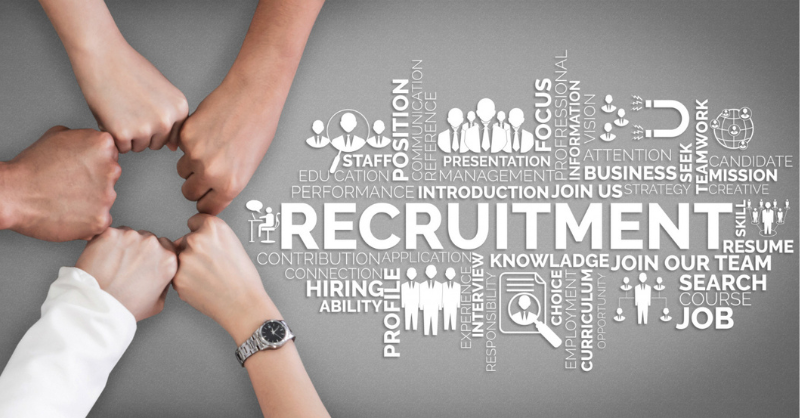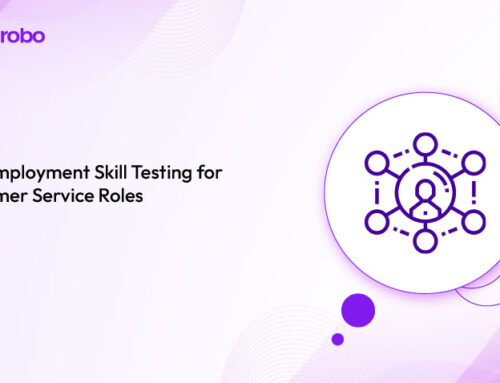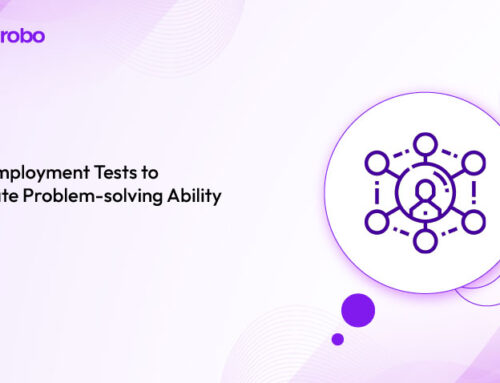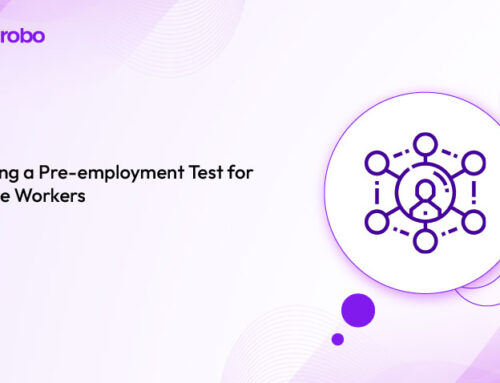
Key Takeaways
- Remote and hybrid work models have become standard, reshaping hiring practices across industries.
- Artificial Intelligence and predictive analytics are improving recruitment speed, quality, and decision-making.
- Strong employer branding is essential for attracting and retaining top candidates in a competitive job market.
- Diversity, equity, and inclusion (DEI) initiatives are critical for building innovative and resilient teams.
- Skills-based hiring is replacing traditional degree-focused recruitment, broadening the talent pool.
Future-Focused Recruitment Trends Every Organization Must Embrace
Recruitment is undergoing rapid evolution, influenced by shifting workforce expectations, technological innovations, and global competition for top talent.
To stay competitive, organizations must embrace current recruitment trends and adapt their strategies accordingly. By understanding these shifts, HR professionals and business leaders can build more agile, inclusive, and future-ready organizations capable of thriving in dynamic markets.
This blog explores the key trends that are shaping the future of hiring, including remote hiring trends, AI in recruitment 2025, diversity and inclusion in hiring, and recruitment technology advancements.
Remote and Hybrid Work Models
The rise of remote and hybrid work models is one of the most significant shifts in modern recruitment. Organizations are no longer limited to hiring talent within specific geographic boundaries.
Impact on Recruitment:
- Expands access to a global talent pool, allowing organizations to tap into new markets.
- Requires new assessment methods to evaluate remote work capabilities, such as self-motivation and digital collaboration.
- Increases the need for strong communication skills, adaptability, and independent time management.
Companies like Twitter, Shopify, and Spotify have adopted “remote-first” policies, leading the way in hiring global talent regardless of location. Hybrid models are now standard in industries such as technology, finance, and consulting.
However, managing remote teams comes with its challenges. Recruiters must assess candidates’ ability to thrive in remote environments, use collaboration tools effectively, and remain engaged without constant oversight.
Organizations that master remote hiring and hybrid workforce management will gain a lasting competitive advantage in attracting diverse, skilled talent.
Artificial Intelligence in Recruitment
AI in recruitment 2025 is transforming how companies identify, engage, and hire talent. AI-powered tools automate repetitive tasks and offer predictive insights, making recruitment more efficient and data-driven.
Applications of AI in Recruitment:
- Resume Parsing: Tools like HireVue and Pymetrics scan resumes to identify candidates who match job requirements based on skills and experience.
- Chatbots: AI-driven chatbots handle initial candidate queries, streamline screening, and improve responsiveness.
- Predictive Analytics: AI predicts candidate success by analyzing historical hiring data.
- Video Interview Analysis: AI algorithms assess communication styles, emotional intelligence, and behavioral traits during video interviews.
Companies like Unilever and Hilton have successfully integrated AI into their recruitment workflows, improving time-to-hire and candidate quality.
Challenges:
Despite the benefits, organizations must address ethical concerns around AI, ensuring transparency, eliminating bias, and maintaining human oversight in decision-making.
When deployed responsibly, AI can significantly enhance the efficiency and fairness of recruitment processes.
Data-Driven Recruiting
The use of analytics in recruitment has moved beyond basic reporting to predictive and prescriptive insights.
Key Recruitment Metrics:
- Time-to-Hire: Measures recruitment efficiency by tracking the number of days to fill a vacancy.
- Cost-per-Hire: Calculates the total recruiting expenses divided by the number of hires.
- Source of Hire: Identifies the most effective channels (e.g., LinkedIn, referrals, job boards).
- Quality of Hire: Evaluates employee performance, retention rates, and cultural fit post-hiring.
Organizations like Deloitte have leveraged data-driven recruitment to reduce time-to-hire by 25% while maintaining quality standards.
By using predictive models, recruiters can forecast hiring needs, refine sourcing strategies, and allocate budgets more effectively. Data-driven hiring decisions minimize guesswork and align talent acquisition with strategic business goals.
Employer Branding
Employer branding has emerged as a strategic priority for organizations looking to attract top talent. A strong employer brand communicates what makes the company a desirable place to work.
Ways to Strengthen Employer Branding:
- Share employee success stories and authentic testimonials through blogs, videos, and social media.
- Showcase company culture, mission, and values transparently on the career site.
- Highlight diversity, inclusion, and corporate social responsibility (CSR) initiatives.
- Create a seamless candidate journey from application to onboarding.
A LinkedIn study found that companies with strong employer brands see a 50% reduction in cost-per-hire and can attract 50% more qualified applicants.
Employer branding is no longer optional — it is a core pillar of competitive talent acquisition strategies.
Diversity, Equity, and Inclusion (DEI)
Diversity and inclusion in hiring are more important than ever. Organizations that prioritize DEI are more innovative, resilient, and better positioned to serve diverse markets.
Best Practices for DEI in Recruitment:
- Use inclusive language in job descriptions and remove gendered or biased terms.
- Implement blind hiring practices by anonymizing applications during screening.
- Partner with organizations that support underrepresented groups, such as Women Who Code or Disability: IN.
- Train hiring teams to recognize unconscious biases and adopt structured interviewing techniques.
McKinsey research shows that companies in the top quartile for ethnic and cultural diversity are 36% more likely to outperform their peers on profitability.
Embedding DEI throughout the hiring process strengthens organizational culture and drives better business outcomes.
Skills-Based Hiring
The traditional emphasis on degrees and academic credentials is shifting toward a focus on practical skills and competencies.
Benefits of Skills-Based Hiring:
- Expands the talent pool by including self-taught professionals and non-traditional candidates.
- Increases workplace diversity and creativity by valuing varied career paths.
- Improves job performance by hiring based on technical proficiency, problem-solving, and adaptability.
Leading companies like Google and IBM have shifted toward skills-based hiring models, placing greater emphasis on real-world skills, certifications, and project portfolios rather than formal degrees.
Skills-based hiring ensures that hiring decisions are meritocratic, fair, and aligned with actual job demands.
Candidate Experience
Candidate experience refers to the overall perception candidates have of an organization’s recruitment process. A positive candidate experience strengthens the employer brand and fosters goodwill, even among those not hired.
How to Improve Candidate Experience:
- Simplify the application process, optimize for mobile devices, and limit unnecessary steps.
- Set clear expectations about timelines and next steps during the hiring journey.
- Communicate transparently and provide timely updates throughout the process.
- Offer constructive feedback to candidates, reinforcing a culture of respect and professionalism.
Common candidate frustrations include a lack of communication, unclear job descriptions, and long hiring processes. Addressing these issues improves offer acceptance rates and builds a strong talent pipeline for future openings.
Recruitment Technology Advancements
Recruitment technology advancements are streamlining the entire hiring process, from sourcing to onboarding.
Key Technological Innovations:
- Online Skill Assessments: Evaluate technical and soft skills objectively.
- Remote Proctoring Tools: Ensure fairness and integrity during online testing.
- AI-Driven Matching Platforms: Align candidates’ skills and interests with job roles.
- Automated Interview Scheduling: Reduce administrative burdens and improve scheduling efficiency.
- Digital Onboarding Platforms: Provide personalized onboarding experiences for new hires.
Organizations investing in recruitment technology experience faster hiring cycles, better candidate quality, and reduced costs.
Modern recruitment platforms enable smarter, more strategic hiring decisions in a competitive landscape.
How Skillrobo Supports Modern Recruitment
Skillrobo plays a pivotal role in modernizing recruitment by offering comprehensive pre-employment assessment solutions tailored to today’s organizational needs.
With Skillrobo’s customizable tests, automated workflows, remote proctoring, and advanced analytics, businesses can evaluate candidates more efficiently and make smarter, data-driven hiring decisions.
Key Features of Skillrobo:
- Custom Assessments: Tailor tests to specific roles and industry requirements.
- Real-Time Reporting: Access detailed candidate performance reports instantly.
- Secure Testing Environments: Ensure fairness with secure, remotely proctored exams.
Skillrobo empowers organizations to build seamless, technology-driven recruitment processes that improve the quality of hire, enhance candidate experience, and significantly reduce time-to-hire.
Conclusion
Recruitment is no longer about simply filling vacancies; it is about building agile, innovative, and future-ready organizations.
Trends such as remote work, AI integration, data-driven decision-making, skills-based hiring, and DEI initiatives are reshaping how companies attract, assess, and hire talent.
Organizations that adapt to these trends — and leverage modern recruitment platforms like Skillrobo — will be better positioned to thrive in a highly competitive and dynamic labor market.
By embracing innovation, prioritizing candidate experience, and embedding diversity and inclusion into their hiring strategies, businesses can create a recruitment process that not only meets today’s challenges but also anticipates tomorrow’s opportunities.
Ready to transform your hiring process?
Sign up for a free demo of SkillRobo today.
FAQs
1. What are the major recruitment trends in 2025?
Major trends include the rise of remote and hybrid work models, AI-driven recruitment, data-driven decision-making, employer branding, and skills-based hiring.
2. How is Artificial Intelligence impacting recruitment?
AI automates resume screening, candidate engagement, and interview analysis, making recruitment faster, more predictive, and more efficient.
3. Why is employer branding important for hiring?
A strong employer brand improves applicant quality, reduces hiring costs, and enhances employee retention by making the company attractive to top talent.
4. What is the role of DEI in modern recruitment?
Diversity, equity, and inclusion initiatives build innovative, resilient teams and ensure fair, unbiased hiring practices.
5. What are the benefits of skills-based hiring?
Skills-based hiring broadens the talent pool, improves job performance, promotes diversity, and emphasizes candidates’ actual abilities rather than academic credentials.









